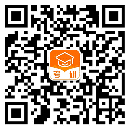作者拥有令人艳羡的地道英式发音,小编初次听到她从教室后方传来的英语时,还以为班上有位英国妞……一起来看看这位筒子是如何练就完美伦敦腔的吧!
I was always being asked by my students how they could learn English better as a second language. There are lots of ways to improve English but not all of them proved effective and efficient to every learner because of the individual learning differences. Perhaps looking at my path of learning can shed some light on it. It was hard to tell holistically - many scenes coming out from my mind - it was a long long journey, harsh but fruitful.
初始阶段:雾里看花
我的语言背景:母语粤语、二外英语
Like many other Hong Kong people in 1970s, I was born in a working family. My parents never received formal education they can only speak Cantonese. Therefore, I could not learn English from them. I learnt Putonghua and English in school, and now I can speak fluent Cantonese (my mother tongue), Putonghua (learnt in my early twenties), and English (as I regard, a second language).
学英语,只为有一个更好的将来
I was raised and received my basic education in Hong Kong. I first entered into the English world when I began my schooling. From kindergarten to primary six, English was taught as a subject – vocabulary, choral reading aloud, dictation … a routine practice. I was not enjoyed being in the English lessons as they were not very interesting. But I was told to study hard because high competence in English could enable one to climb up the social-economic ladder and have a great future prospect. I still worked very hard studying the language just because this was one of the subjects I had. I had never thought of the importance of acquiring English.
英文授课,查字典是常事
After the completion of primary six I entered an English as the medium of instruction secondary school. It was a newly established Christian missionary school in the New Territories. Though it was so-called English medium, I seldom heard English in the school. But interestingly all teachers and students were using English-medium textbooks and students were required to use English for their homework (except subjects like Chinese, Chinese history and Religious Studies). Teachers conducted their lessons in Cantonese with some English terms (Code-mixed) while students did their work and examinations in English only.
字典中自有颜如玉
So looking up difficult word meanings from the dictionary became a daily assignment to me. When I looked back to that stage, I admitted this ‘activity’ was boring but fruitful. Those words that I had spent time on with dictionary were impressed deeply into my mind. I tried to match the language with my first language. Contrasting the two languages helped me understand more about English. Yet, to me, English was merely a subject to learn and to use in the classroom. I and my classmates seldom used English in our daily chatting. That could be one of the reasons why I found it quite difficult to talk with others in English later.
In sum, I had no specific goal in learning English at that time. In fact I did not know how much and why I had to learn the language.
发展阶段:重拾信心
There was a significant change of my learning attitude towards English as I grown up. When I was promoted to Form Four, I became more aware of the importance of acquiring good English – to achieve a good result in the public examinations. Because of this strong commitment, I sought ways to raise my English standard.
转战各种习题 欲速而不达
In school, my English teacher enlightened me on the language. We did a lot of reading, listening and grammar practice in class. As I was rewarded a lot (got more correct answers) I became more ambitious in ‘acquiring’ it. After school, I spent a lot of time on learning English through reading, hoping that my English would be boosted in a short period of time. Though I had made use of different strategies in improving my English, the result was discouraging.
被赞赏发音地道 开始思考
I still faced lots of problems. I found difficult in understanding authentic texts and I was struggled to speak in English. I had problem in using English to communicate! I found myself always anxious about making grammar errors and using wrong vocabulary. I realized I did not have confident in speaking English. One day, after I had read an English passage in the lesson, my teacher and classmates told me I could read beautifully as if I were a native speaker. I was so delighted at that moment though, I was curious about whether I had already acquired the language. Was it simply because I had prepared well (read many times in my heart)? Was it my talent or by instinct that made me speak like a native? How should I evaluate myself I have acquired the language? I was asking myself lots of questions.
① 凡本站注明“稿件来源:中国教育在线”的所有文字、图片和音视频稿件,版权均属本网所有,任何媒体、网站或个人未经本网协议授权不得转载、链接、转贴或以其他方式复制发表。已经本站协议授权的媒体、网站,在下载使用时必须注明“稿件来源:中国教育在线”,违者本站将依法追究责任。
② 本站注明稿件来源为其他媒体的文/图等稿件均为转载稿,本站转载出于非商业性的教育和科研之目的,并不意味着赞同其观点或证实其内容的真实性。如转载稿涉及版权等问题,请作者在两周内速来电或来函联系。






 中国教育在线
中国教育在线





